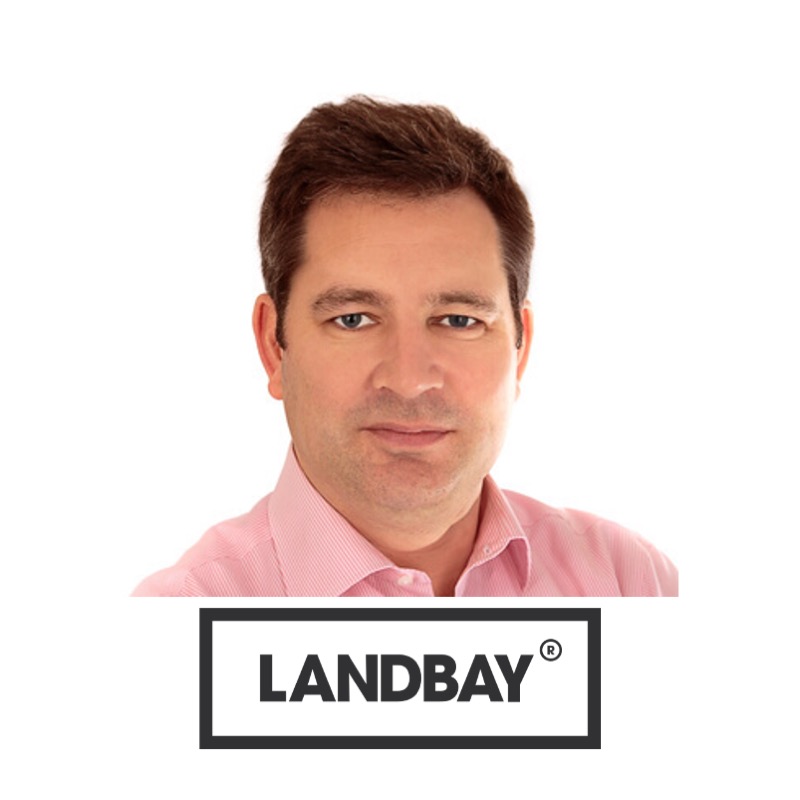When to be stubborn
Zero to one – challenges
Assembly is an active investor which helps businesses scale. Our portfolio firms tell us we add value whilst we, in turn, learn from the teams we work with. After all, each is creating – from nothing – a fast-growing business. I want to explore some of the themes we’ve picked up on in a short series of posts. First up is Landbay CEO, John Goodall. We’ll talk about the patience needed to create real competitive advantage; knowing when to change something in the business model; and, when stubbornness can be a virtue.
Three years ago, in a private conversation about Landbay – a firm in which I had invested personally and in which Assembly as a fund would also invest* – a Fintech journalist said to me, “Landbay always disappoints.” I didn’t then – and obviously don’t now – agree with him. The team at Landbay has built a business which has won numerous awards in its field and attracted world-class names as partners for its institutional debt funding. The business is within sight of profitability and ready to scale. And all this despite the economic impact of the coronavirus (which may yet worsen).
Building a business vs the theatre of innovation
And yet, to be fair to the journalist, he was making a more interesting point than he knew. At the time, a great deal of attention was focused on the UK’s marketplace lenders. They seemed to be glamorous, high-growth startups – some even thought they might be tech businesses – or, at least, that they should be valued as such. The Founders of some of these businesses even operated under the (apparently sincere) delusion that they would replace the banks. In this context, Landbay at the time could have seemed unambitious. CEO, John Goodall, stuck to his original plan to originate in a specialist asset class and refused to chase easy but shallow growth. He also knew he had an important change to execute. The focus of Landbay’s funding efforts would move from retail to institutional.
Day by day, the team built an IT platform and customer brand to create and maintain a competitive advantage in the specialist asset class of buy to let (BTL) mortgages for professional landlords. How much easier it would have been to grow quickly in consumer debt. Origination volumes would have spiked and my journalist acquaintance would have been as impressed as he was by the other UK marketplace lenders. Today, those businesses look hollowed out. The long-term share price chart of Funding Circle tells the story.
Every business that pitches to Assembly has a marke-size page in its deck. If it’s me being pitched to, I ask the Founder to skip it. What I’m interested in is the hard work of identifying and creating a sustainable competitive advantage to allow the business to take significant market share in a niche. Only then, should the team be thinking more widely. It’s a hard thing to do for many reasons but also because the Fintech ecosystem – conferences, journalists, ‘innovation’ hubs and the judges of the many inane Fintech awards – leans the other way. Short-term growth and self-promotion are prized over building a business.
With all of that in mind, I caught up with John recently both to look over the challenges and achievements of the last few years and to hear his thoughts on the future:
Sticking to a core asset class; transition to B2B
MB: Was it difficult to stick to the Landbay plan rather than chasing short-term growth?
JG: One of the real challenges for retail peer to peer lending is origination costs – and at different times in a business’s evolution it can be on the borrower or on the investor side. In the early days – before any institutional capital is on the platform – it is typically a challenge on the funding side. That was certainly the case for us – particularly as our loans are pretty large, rates are low compared to our peers because they are relatively very low-risk, and they are long-term and interest-only (capital isn’t being recycled as it would be for a bridging or amortising loan).
JG: When we raised some capital in late 2014, about 6 months after launch, we took the decision to spend some of this on an advertising campaign; this included advertising on the tube and through personal finance websites and print media. To put it bluntly, it was a complete waste of money. We did grow our investor base, but it would have taken years for these customers to become profitable for Landbay. We realised that if we wanted to scale, we needed to do it with institutional capital. We then grew the retail side purely organically and made our focus institutional capital and building competitive advantage through our platform that was becoming widely used by intermediaries (mortgage brokers). Effectively, we began transitioning to a B2B business. This has been the focus since 2016 – there have been ups and downs along the way and challenges, but we have always been pretty clear about the opportunity that exists if we remain focused. We are probably only about a quarter of the way there yet.
Patience, belief, a degree of stubbornness . . .
MB: It’s been a long road since 2014 – what most surprised you – what one piece of advice would you pass on to someone starting a company for the first time?
JG: Well, after the last few years I have learned not to be surprised by much. It is certainly the case that things moved slower in the first few years than we expected, but they are moving faster now than we could have expected. I think that is common for many start-ups and I would suggest that anyone starting out remember that.
In the early days, in particular, you have to get used to people saying ‘no’, or even ignoring you. You need a thick skin and patience and belief in what you are doing. Even a degree of stubbornness is a good thing. Certainly, speak to a lot people, listen to their advice, but that doesn’t necessarily mean you should follow it. Finally, people really matter – the soul of a business is those people that work for it and their key partners. Choose them wisely – mistakes on that front can be costly!
People are the firm’s key asset
MB: The global pandemic clearly had a hugely negative impact on the wider economy. Landbay must have struggled – at one point in the UK it was impossible to carry out a single physical property valuation. What adjustments has the business made?
JG: The move to working from home was relatively straightforward and the business coped pretty well on that front. Obviously, there were teething problems and it was happening at a time of great uncertainty and so it was difficult to plan. All of the team were fantastic, they just rolled their sleeves up and got on with it – we really focused on communication within the organisation – it was a tough time. The outlook in April didn’t look great and we were all stuck indoors and, in some cases, living alone. We have always had a strong culture within the firm and this has become even more important. It has really reinforced my view that hiring good people, giving them responsibility, ensuring they have the resources they need and treating them really well is the most important part of a CEO’s or management team’s job. They are the biggest asset the business has and – while we will make some adjustments to how we operate and to working patterns – this will remain key. We are very thoughtful about how we maintain and improve the culture and ensure we continue to operate as one team as we grow.
Scaling
MB: Looking forward, where do you see the business in 3-5 years?
JG: We see huge opportunity within the BTL mortgage market and so it is really a case of ‘do more of the same and do it better’ – that means investing in our technology, in our brand and in our people and continuing to diversify funders on the platform. We have extremely ambitious plans for where we want to be five years from now and, in simple terms, that is the leading BTL lender in the UK. I believe we have the building blocks to get there, it is now about execution. We have been pretty open about our desire to IPO the business and we would expect to do that but the focus within the business is on sustainable growth.
MB: Thanks, John. That seems like a great place to break.
*Assembly, having invested more than once, remains the only VC on the Landbay cap table. I represent Assembly on the Board and own shares personally.


